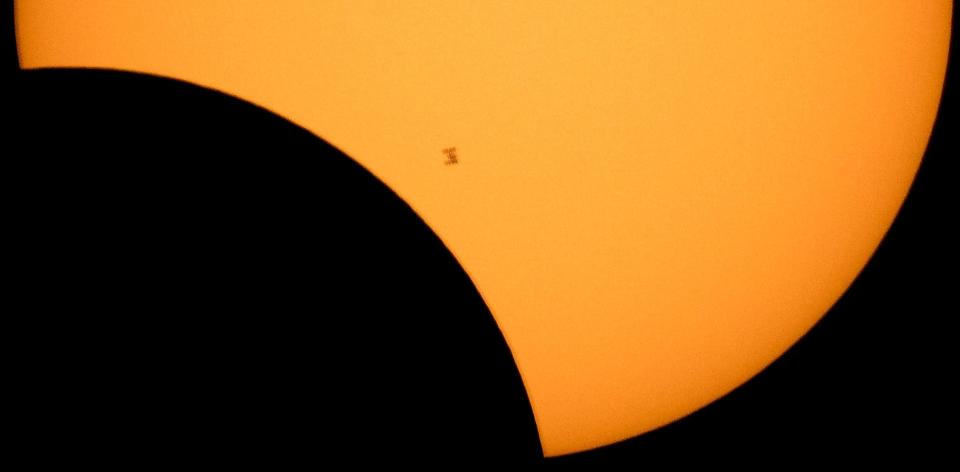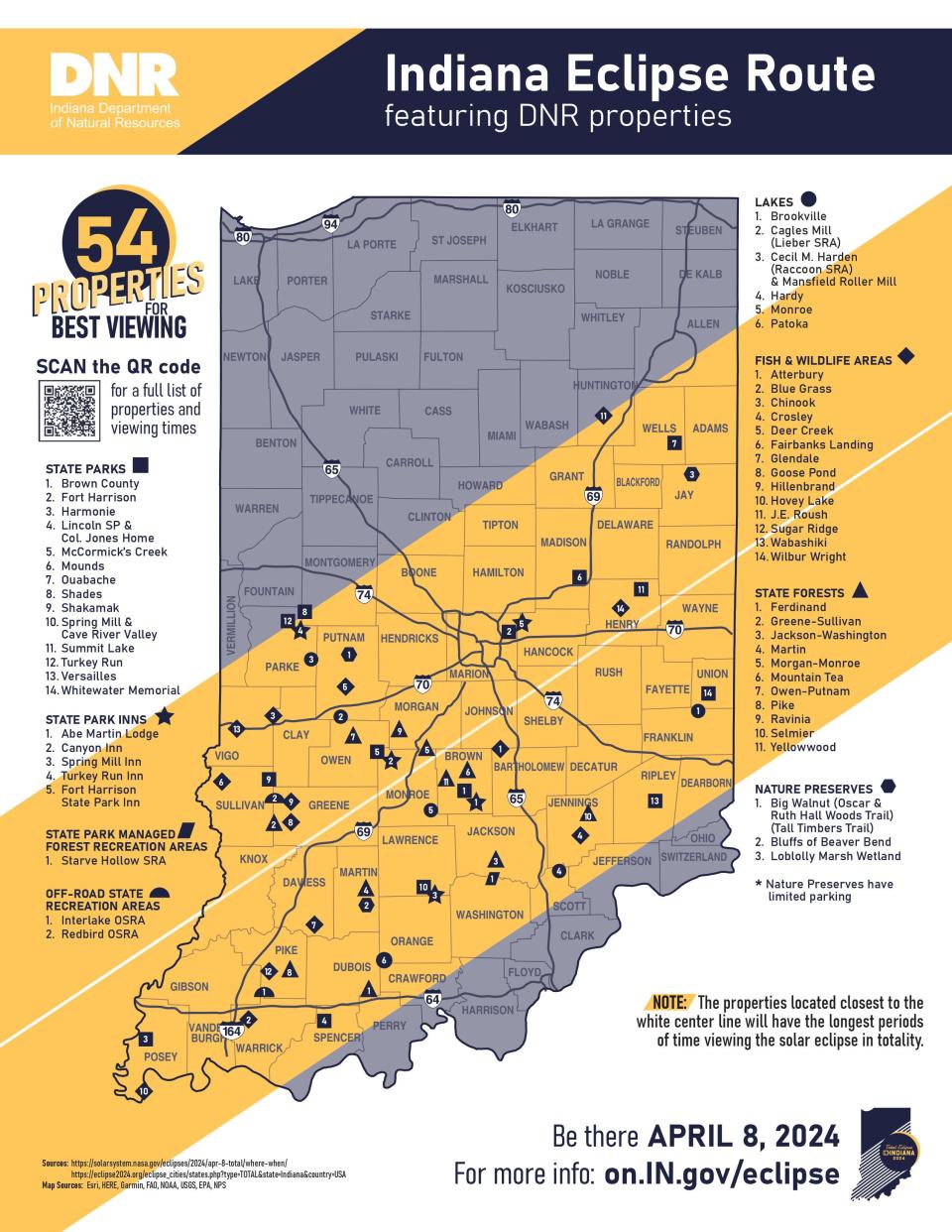Scrub Hub: How will the eclipse affect Indiana's wildlife?
Hoosiers have been preparing for weeks for the April 8 eclipse, and there are dozens of places to witness the event across much of Indiana.
Some Indiana state parks and the Hoosier National Forest are within the path of totality, but there are plenty of outdoor venues with a great viewing experience.
As Hoosiers gear up for the event, the birds and bugs and other wildlife across Indiana will likely be surprised and confused as their world goes dark in the middle of the day.
So, for this edition of Scrub Hub, we answer: What happens to wildlife during a total solar eclipse?
We looked into some research and spoke with Goose Pond Fish and Wildlife Area’s property manager, Kallie Dunn.

Wildlife may appear confused and anxious
Animals take behavior cues from the environment, and one of the biggest cues is daylight.
A common thing for birds, Dunn said, is they might see the eclipse and begin to switch to their nighttime behavior. The darkened skies will look like dusk and birds may reduce daytime foraging behavior, change singing calls to more nighttime calls and even get confused and start trying to go to roost.
During the 2017 eclipse, a study using radar to detect bird and insect movement in the air showed a flush of activity during totality, Dunn said. The critters were getting confused about what was happening.
It’s also possible, Dunn said, that animals might perceive an eclipse as an incoming storm and begin to head for shelter from wind and rain.
Goose Pond typically has a lot of pelicans, and Dunn said she will be curious to see how they and other shorebirds react to the eclipse.

A study out of Venezuela in 1998 showed pelicans sought out their nighttime roosts during totality. Egrets and herons in Kansas also went to roost according to a 1994 study.
A more recent study, published in 2020 in the Animals journal, showed that while a majority of observed animals establish evening behaviors, the next most frequent response was apparent anxiety.
The findings suggest some animals exhibit a more fearful response to the eclipse. Horses clustered and shook their heads, some bird species stopped flying and would remain silent and still, and a group of captive moneys climbed to the highest part of their enclosure and oriented themselves toward the sky.
Previously on Scrub Hub: What's that odd gobbling-like sound way up in the sky? Hint: It's not turkeys.
Other captive animals within zoos — mostly giraffes, flamingos and baboons — were seen huddling together during the eclipse.
The Indianapolis Zoo published on its website that large animals might make vocalizations during the eclipse and head toward the barn where they sleep.
So wherever you find yourself during the eclipse, take a moment to check out what the native wildlife and other animals are doing.
Karl Schneider is an IndyStar environment reporter. You can reach him at karl.schneider@indystar.com. Follow him on Twitter @karlstartswithk
IndyStar's environmental reporting project is made possible through the generous support of the nonprofit Nina Mason Pulliam Charitable Trust.
This article originally appeared on Indianapolis Star: Scrub Hub: How will the eclipse affect Indiana's wildlife?

